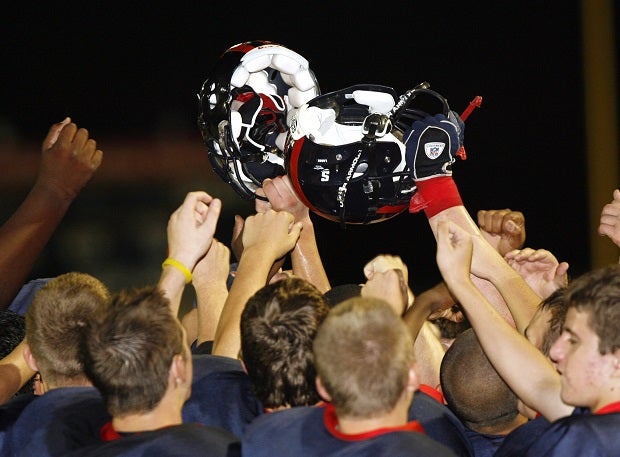Video: Not Top 10 Plays of November
See these funny 'oops' moments from gridiron and hardwood.
One of the most popular instances of a selfish athlete happened during a press conference with an NBA player. Selfishness was on full display when Allen Iverson said, "We're sitting in here, and I'm supposed to be the franchise player, and we're here talking about practice. I mean listen, we're talking about practice, not a game, not a game, not a game, we're talking about practice. Not the game that I go out there for and die for and play every game like it's my last. Not the game, but we're talking about practice, man. I mean, how silly is that?"
How silly is it? It's silly that the franchise player wouldn't lead the way with his practice attitude and effort. That's pure selfishness.
One of the best ways to ruin your team is to allow selfishness. Allow that highly recruited player, or that administrator's son, or that booster president's child or the all-league returner to separate them by being "all about me." Tolerating selfish players will most certainly tarnish your squad.
Three steps for handling the selfish athlete
Allowing selfish players to remain unchecked is a sure-fire way to create division on your team.
File photo by Sean Moffett
Selfish athletes can drain the energy that a coach needs to effectively lead the troops. They constantly cause little fires that you have to deal with as a coach. If you allow this to happen, you're cheating the team.
When you see the selfishness seeping in, you've got to address it immediately. I suggest doing this one on one; head coach and player. Failure to do so will allow the negativity to spread, and it will turn your players in to enemies of the selfish player.
2. Address it again, this time with your captainsOne of two things will happen after you address a selfish athlete. They will see the error of their ways, humble themselves and get back to work. Often times, a renewed sense of work ethic is found, and the player wants to impress his teammates and coaches.
The other thing that happens is the selfish player gets a chip on their shoulder. They get offended that you pointed out they are being selfish. So, they get even more selfish.
If you don't see the behavior change in your athlete after several weeks of trying to work with their negative attitude, confront them again. This time, sit down with your captains or leadership team. The offending player needs to be addressed by their peers. This can be uncomfortable for their peers, but in my opinion and from my experience, it works much better than coach to player. As long as the players have each other's respect and trust, this is usually a good eye opening meeting for the selfish player.
Hopefully you don't have to resort to the last option. But in certain situations, it might be the best thing for the program, and the child.
3. Remove the player from the teamOne of the most selfish players I've ever had on a team was also the best player on my team during his senior year. He was the star of our offense as a junior, an all-league player. Word quickly spread during the offseason that he "could cruise through the offseason because coach won't do anything to me."
That sentiment couldn't be further from the truth.
He caused a lot of issues towards the end of his junior season, he became a cancer as his stock went up. He was starting to tick off his teammates. He was a part of our Player Committee, my leadership group of students. After he missed a few meetings in January, and then came half way through one in February, a few of the other players approached me.
"Coach, we need to figure out how to fix John Doe. He's becoming a real cancer to this team." I agreed. We addressed it in the next committee meeting. The committee wanted a rule about attendance at our leadership meetings. I allowed them to come up with that. The strict attendance guideline was that if you missed a meeting, and it wasn't excused by the head coach, you were off the Player Committee for the rest of the year. All six players signed off on this new rule, a self-policing procedure.
Sure enough, that kid missed the next meeting. He told nobody that he was going to miss. He was testing the rule. Once it was determined that there wasn't a family emergency, we told him that he was removed from the Player Committee. Two days later, he quit the team. We went on to win a League Championship that year, upsetting an eight consecutive League Champion! It was a tremendous season, with zero drama.
Chris Fore is a veteran Head Football Coach and Athletic Director from Southern California. He consults coaches and programs nationwide through his business Eight Laces Consulting.
